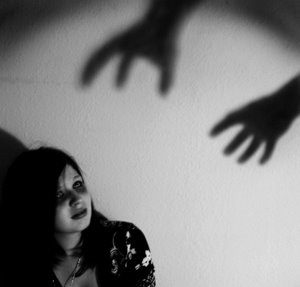Domestic Violence Awareness Month: Trauma And Eating Disorders
 October is National Domestic Violence Awareness Month, and it is often ignored that the trauma caused by abuse can be a significant factor in developing an eating disorder.
October is National Domestic Violence Awareness Month, and it is often ignored that the trauma caused by abuse can be a significant factor in developing an eating disorder.
One thing eating disorder and abuse victims have in common is a need for control. For those suffering from an eating disorder, the need for control does not come from a place of feeling entitled to power like it does in domestic violence. People who suffer from eating disorders often feel that they have no control over their lives. Furthermore, these individuals feel inadequate, have low self-esteem and suffer from severe depression, anger, anxiety and loneliness.
Victims of domestic abuse experience something similar, as many have been stripped of any power and have little to no control over their own lives, which can lead to depression and isolation. Moreover, victims of abuse are both physically and emotionally abused. Like those suffering from eating disorders, they are also self-conscious. Due to the many overlapping conditions and similarities these two issues share, many domestic violence abuse victims can develop eating disorders.
Trauma and Eating Disorders
Studies have shown a significant correlation between the development of traumatic experiences and eating disorders. One eating disorder that has been connected to trauma as a means of self-protection is bulimia. The binge-and-purge cycle seems to provide an escape from the strong emotions that may accompany traumatic experiences, such as anger and guilt. Additionally, it fulfills a need to cleanse oneself of the experience and refocus. The cycle also provides a feeling of control and predictability as well as a need for personal space.
Post-traumatic stress disorder (PTSD) is often a co-occurrence in people who suffer from eating disorders. This is particularly true with victims of childhood sexual abuse. Studies on childhood sexual abuse and body image have shown that 30 percent of individuals with an eating disorder have been sexually abused. Researchers believe that body shame sparks a large amount of eating disorder behaviors in sexual abuse victims. Feelings of shame often trigger a desire for self-harm that is focused on trying to destroy the body, which can result in starvation, purging or binge eating.
Victims of sexual abuse or domestic abuse, particularly children, are at an increased risk for developing eating disorders.
Getting Help
When seeking help it is important that treatment addresses both the eating disorder and the traumatic experiences that a person has encountered. If the trauma is not addressed during treatment for an eating disorder, recovery can become extremely difficult. Remember that one of the most important factors in recovery is strong support from family and friends.
Sources: National Eating Disorders Association, National Domestic Violence Hotline
 Eating Disorder Self Test. Take the EAT-26 self test to see if you might have eating disorder symptoms that might require professional evaluation. All answers are confidential.
Eating Disorder Self Test. Take the EAT-26 self test to see if you might have eating disorder symptoms that might require professional evaluation. All answers are confidential.